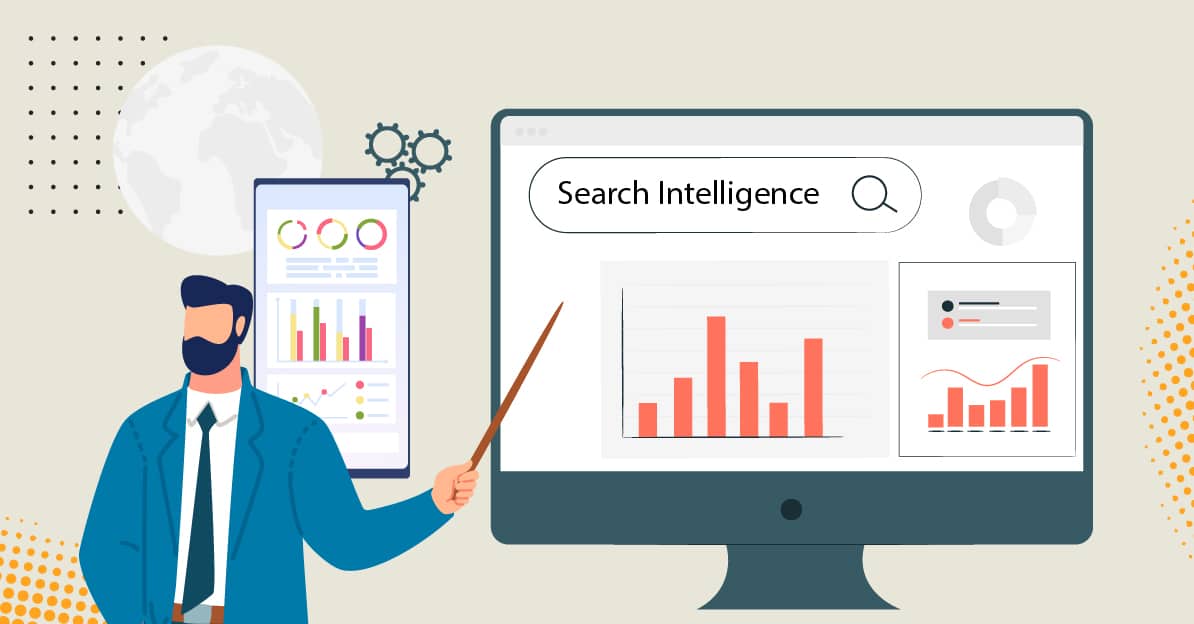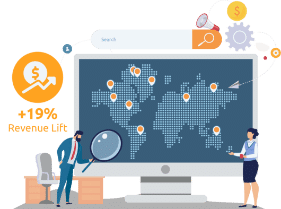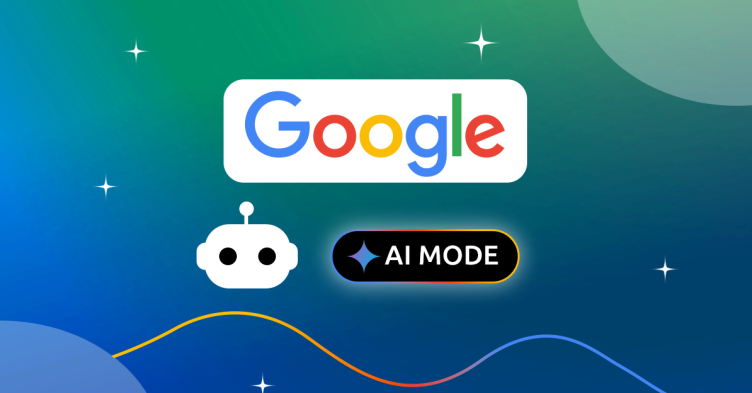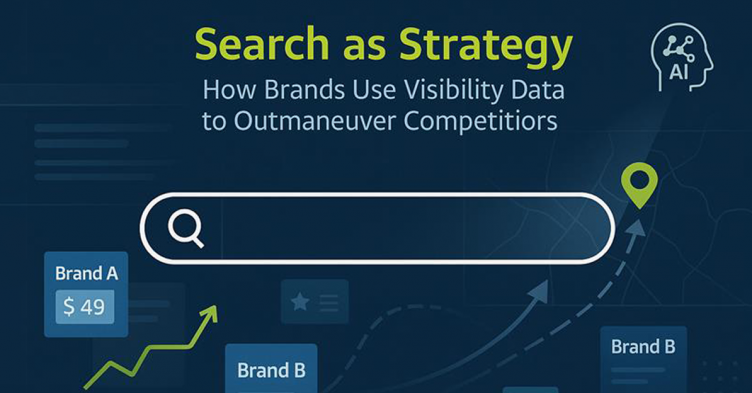The use of search engines has become integral to various activities such as marketing, research, shopping, and learning. According to a recent Google study, search engines hold a market share of 92.6% worldwide and 87.7% of the market in the US as of December 2022.
Given the widespread adoption of search engines by consumers, companies of all sizes – from large, medium, and small to startups – rely on them for their search engine marketing, lead generation, brand awareness, conversions, and sales. As a result, organic and paid ad campaigns on search engines are hyper-competitive.
To succeed in the search market, it is crucial to have holistic and granular insights into search. However, the data and reports provided by search engines, marketplaces, and other sources are often rigid, insufficient, and hence of limited value. Thus, there is a growing demand for search intelligence tools that offer rich data and insights to help marketers enhance search performance, drive sales and ultimately increase market share.
In this article, we will explore Search Intelligence, its components, and how it benefits marketing professionals working in brands, retailers, and agencies.
Table of Contents: Show
Search Intelligence enables you to monitor, analyze and act on end-to-end Search Engine Results Page (SERP) data. Platforms that offer Search Intelligence empowers marketers to analyze SERP data to develop a comprehensive search strategy and optimize their paid advertisements and organic listings. Ultimately this helps maximizes the overall search performance.
By leveraging Search Intelligence, marketers gain valuable insights into their competitors, the layout of SERPs, and the paid search landscape. They can monitor search dynamics at both a local and global level, analyze various ad formats, and stay updated on the ever-changing SERP landscape. With this information, search marketers can develop effective strategies to optimize their search budgets across SEO and SEM initiatives, and gain a competitive advantage.
Components of Search Intelligence
In today’s fiercely competitive search landscape, understanding the dynamics of the search engine results page (SERP) is essential for successful search campaigns. Achieving a comprehensive view of your SERP and mastering effective tactics to outshine your competitors are vital skills.
Search Marketing Intelligence goes beyond providing a holistic understanding of the competitive landscape. It offers valuable insights into ad cannibalization issues, SERP fluctuations, and market share of voice. These insights empower you to conduct a thorough audit of your search marketing performance, guiding you in selecting the most effective strategies.
By leveraging Search Marketing Intelligence, you gain valuable knowledge about your competitors and real-time coverage of their paid ads. This information allows you to make informed decisions and maximize the visibility and click-through rates (CTR) of your search campaigns. Ultimately, this leads to a high return on ad spend (ROAS) and exceptional campaign performance.
Here is a Holistic Search Insight for SERP Features Trends in the US. – SERP Features Trends for Apparel & Accessories Marketing
Having a deep understanding of paid search dynamics is crucial for SEM professionals, as it can significantly impact the success of advertising campaigns. While advertising platforms provide analytical reports, relying solely on them is insufficient to gain a comprehensive understanding of the various factors influencing paid search campaigns.
Paid Search Intelligence, as a subcomponent of Search Intelligence, offers marketers and brands a holistic view of paid ads performance. Unlike auction reports from Google and Bing, these insights encompass SERP volatility, true ad positions, competitive landscape, and shopper attributes. By leveraging these comprehensive insights, you can gain a competitive edge and make data-driven decisions to enhance your paid advertising campaigns.
Paid Search intelligence can help with –
- Paid Ads Trends & Fluctuations
- Monitor and Measure Share of Voice (by Geography, Search Devices, Paid search features)
- Visibility into Marketing 4Ps of Emerging Competitors
- Opportunities to win more market share
- Data-driven Budget Mobilization tactics
- Insights into eCommerce Shopper’s Journey
- Insights into Google Shopping Ad Extensions, Annotations & Labels
Paid Search Intelligence tools provide holistic insights and real-time data on a variety of ad formats such as –
- Google Shopping Ads
- Ad Extensions
- Annotations
- Label
- Text Ads
- Display Ads
- Local Ads
Learn more about Paid Search Intelligence Software
Here are two case studies that demonstrate how Paid Search Intelligence can be used to maximize click-through rate (CTR) and search budget mobilization.
- Retailer Increases revenue by 20% with holistic search insights
- 20% Increase in Revenue
- $55K Ad Budget available to Reallocate
- Health Beauty Brand
- 20% Increase in Clicks
- 33% Reduction in Ad Spend
- $52K Estimated Savings for Reallocation
Read more about Ad Intelligence and how it can boost Ad Performance
SEO Intelligence is a sub-component of Search marketing intelligence that helps SEO Directors and Managers understand organic SERP layouts, SERP features fluctuations (such as Google Popular Products, People Also Ask, Featured Snippets), and other trends impacting organic performance. This is possible through real-time search monitoring data and granular insights on all SERP formats across the competitive landscape.
SEO intelligence helps monitor a brand’s performance with competitive metrics. Some metrics offered by SEO intelligence are:
- Share of Search: Monitor brand and competitive brand’s popularity
- Above-the-Fold Coverage: Understand total SERP visibility
- True Ad Rank: Track accurate organic SERP position
- Click Share: Analyze competitor click shares in the client’s keyword landscape.
These professionals can easily monitor SERP layouts based on:
- Keyword intent
- Geo-location
- Device
- Keyword strength and volume
- Category/Sub-category
These factors have a significant impact on organic campaigns, click share, share of search, and lead flow. In addition to considering SERP layout, SEO marketers can utilize SEO Intelligence data to identify target keywords and categorize them for SEO or SEM teams. Moreover, insights on striking distance keywords, budget optimization keywords, and keyword gapping can help bridge the gaps with competitors.
Learn More: SEO Intelligence Software
The following case study highlights the effectiveness of SEO Intelligence to optimize CTR, click share, and Google Share of Voice.
- B2B Company
- 212% Growth in Share of Clicks
- 192% Growth of the Keyword Universe
- 244% Growth in Google Share of Voice
Before we move on to the next topic, you may be interested in learning more about the insights provided by Search Intelligence and how it can help you increase your holistic search visibility in SERPs.
Please read our article on Holistic Search Explorer.
Although search engines such as Google, Bing, and Baidu provide their own metrics, they do not offer comprehensive insights into the factors influencing organic and paid search campaigns. This is where Search Marketing Intelligence comes into play, providing innovative search metrics and insights that are not available on the standard SEO/SEM tools or search engine insights platforms. Here are five key metrics provided by these tools:
- Share of Search
- True Ad Rank
- Above the Fold/Below the Fold Coverage
- Inbound Share of Voice
- Click Share
For in-depth insights into these metrics, please click on the following link: Top 5 Search Metrics for Managers
Search Intelligence (SI) is often seen as beneficial only to search marketers. However, the insights from SI are valuable to a variety of teams within an organization. Let’s explore how different teams can utilize search intelligence to meet their targeted goals. Let’s start with Agencies
The core responsibilities of the Business Development team encompass securing new business, driving growth for existing clients, and identifying fresh market entry opportunities. However, the current tools at their disposal provide only limited insights to support this. This is where Search Intelligence comes into play. With its customizable real-time search monitoring capabilities, search intelligence offers the entire competitive landscape.
Below are 7 compelling benefits of Search Intelligence for Business Development teams –
- Data-Driven Sales Opportunity Reports
- Holistic Data across Markets
- Client Performance Insights
- Holistic Strategy for Maximizing ROAS
- Gaps across Categories
- Competitive Gaps and Shopper Trends
- Insightful Competitive Reports
Discover the Art of Winning New Business through Holistic Search Insights.
The Strategic Planning Team plays a critical role in assessing organizations, identifying, and analyzing their Brand SWOT. In addition, they are responsible for devising new strategies to enhance the performance of Agency and Brand teams on digital search platforms.
Search Intelligence is vital to track the changing Google holistically – at a market and competitive level. The right search intelligence designed to keep up with Google allows granular SWOT analysis, and deeper competitive analysis at a market level
Here are key benefits for strategic planning teams from Search Intelligence:
- Holistic visibility despite Google changes across the Shopper Journey
- Actionable Insights to build New Strategy
- SERP Landscape Driven Insights for New Market Entry
Want to learn how to boost your search marketing performance with Marketing Strategic Insights?
Search Intelligence offers invaluable advantages that enable the Data Analytics team to save significant analyst hours and streamline their workflow.
Here are the key benefits of Search Intelligence:
- Time-Saving Efficiency
- Access to SERP, retail pricing, and product experience data
- Multi-segmented analytics capabilities
- Insights into advertising, merchandising dynamics, and digital shelf data
- Marketing 4P Insights data
- Competitive analysis with competitor data
- Seamless Integration with BI Tools like Data Studio, Quick Insights, BI, Tableau
- Actionable Insights are presented in Data Studio dashboard reports.
Learn More about Data Technology to drive agency innovation
In an Advertising agency, the account team plays a pivotal role in nurturing client relationships and ensuring their needs are met. A key responsibility of the account team is to provide timely updates and reports based on client feedback. To accomplish this effectively, the team must have a deep understanding of the client’s requirements and their performance, with a specific focus on key performance indicators (KPIs) such as return on ad spend (ROAS), return on investment (ROI), and more.
Search Intelligence offers a comprehensive solution that equips account teams with all-in-one holistic search insights, enabling them to proactively manage their clients’ search performance, optimize budget allocation, and deliver impactful reports.
Learn More: Insights & Analytics for Account Management
The marketing team is responsible for building and maintaining a brand’s awareness among its target audience. This is accomplished through a variety of channels, including organic search, paid search, content marketing, video marketing, email marketing, and more. While there are numerous tools available for marketing teams, existing market tools often offer limited insights that lack actionability.
Search Intelligence offers numerous benefits to the marketing team such as:
- Data-driven insights for organic and paid campaigns
- Market Pulse report for SERP landscape analysis
- Real-time SERP data for content strategy
- Share of Voice (SOV) trends analysis
- Holistic visibility optimization for mobile to optimize search budget for paid campaigns
Search intelligence is equally powerful for brands to evaluate their strengths and weaknesses from SERP insights.
Here are six benefits of search intelligence for marketers at brands:
- SWOT analysis: Understand your brand’s strengths, weaknesses, opportunities, and threats.
- Search marketing performance audit: Track ROI, the share of voice, and other metrics to identify areas for improvement.
- The holistic view of the market landscape: Visualize the market landscape across countries, cities, devices, search intent, and SERP fluctuation with our Local/International SERP Monitoring.
- Find & evaluate competitors: Understand top and emerging competitors, build a strategy to get a competitive edge, and increase market share.
- Product experience audit: Evaluate and compare competitor’s product features, prices, reviews, offers & promotions to build data-driven strategies.
- Brand Protection: Protect your brand value from MAP violations, get alerts of violations, and enforce them with brand protection software.
In today’s competitive market, relying solely on reports from search engine platforms and auction reports is insufficient. To excel in search marketing performance, you must leverage an advanced Search Intelligence platform that looks at the SERP landscape holistically.
This type of Search Intelligence solution is instrumental for agencies and brands to track the existing and new SERP listings on organic, text ads, shopping ads, maps, local listings, videos and other SERP elements that appear locally and globally quickly and cost effectively. By utilizing these granular SERP level trends, search strategists and managers at brands and agencies can create new strategies to gain higher search market share.



